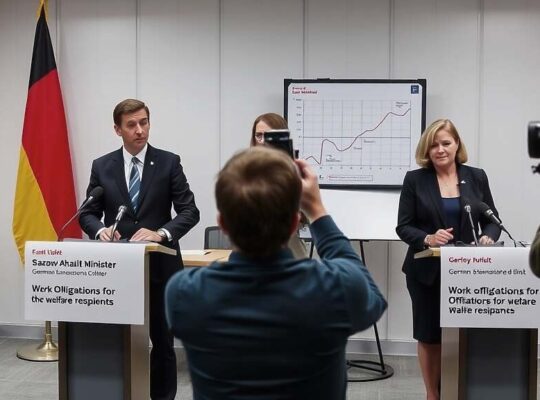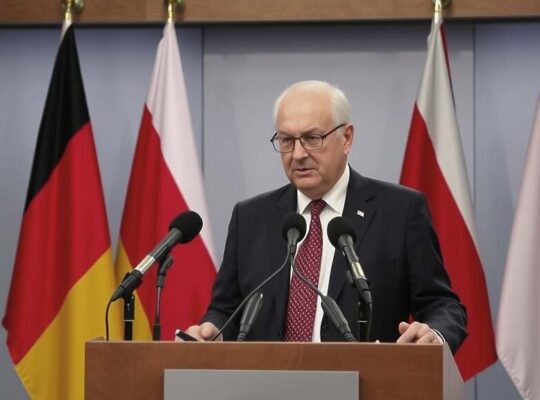Three years after arriving in Germany, slightly more than half of Ukrainian refugees have entered the workforce, according to a new study released Tuesday by the Federal Institute for Population Research (BiB). The report, analyzing the progress of individuals who arrived between February and May 2022 and aged 20-64, reveals that the employment rate reached 51% by early summer 2025 – a figure broken down to 50% for women and 57% for men. While employment figures saw a gradual increase in the initial two years following arrival, the pace of integration into the German labor market significantly accelerated during the third year.
The study highlights a striking comparison with the integration rates of asylum seekers from other countries, demonstrably faster in the case of Ukrainian refugees. The employment rate, initially at 16% in late summer 2022, has more than tripled to the current figure, largely attributed to successful completion of integration and language courses. Reports also indicate growing job satisfaction among these refugees.
Importantly, the research underscores the crucial role of family reunification in facilitating integration and long-term settlement. Many women who initially fled Germany alone or with children have since been joined by their partners, proving integral to stabilizing their personal circumstances and fostering a sense of stability within families. This dynamic raises pertinent questions about the government’s ongoing support for and facilitation of family reunification processes, particularly given its apparent correlation with successful integration.
The analysis extended to the wellbeing of children and adolescents, revealing that nearly half possess good to very good German language skills – exceeding that of their parents. However, a significant portion reported a lack of connection to their schools and face heightened socio-emotional stress. This disparity demands scrutiny of schooling systems and psychosocial support mechanisms to foster a greater sense of belonging and address the specific needs of Ukrainian refugee children.
While participation in extracurricular activities and the development of friendships within Germany improves school affiliation, the study emphasizes a crucial preventative measure: access to integration and language support programs demonstrably correlates with reduced feelings of loneliness and isolation. The findings raise concerns about the equitable distribution of these vital services and warrant further investigation into potential barriers hindering access for certain segments of the Ukrainian refugee population. The BiB’s research underscores both the successes achieved in integrating Ukrainian refugees and the ongoing challenges that require targeted policy interventions to ensure their long-term wellbeing and full integration into German society.












